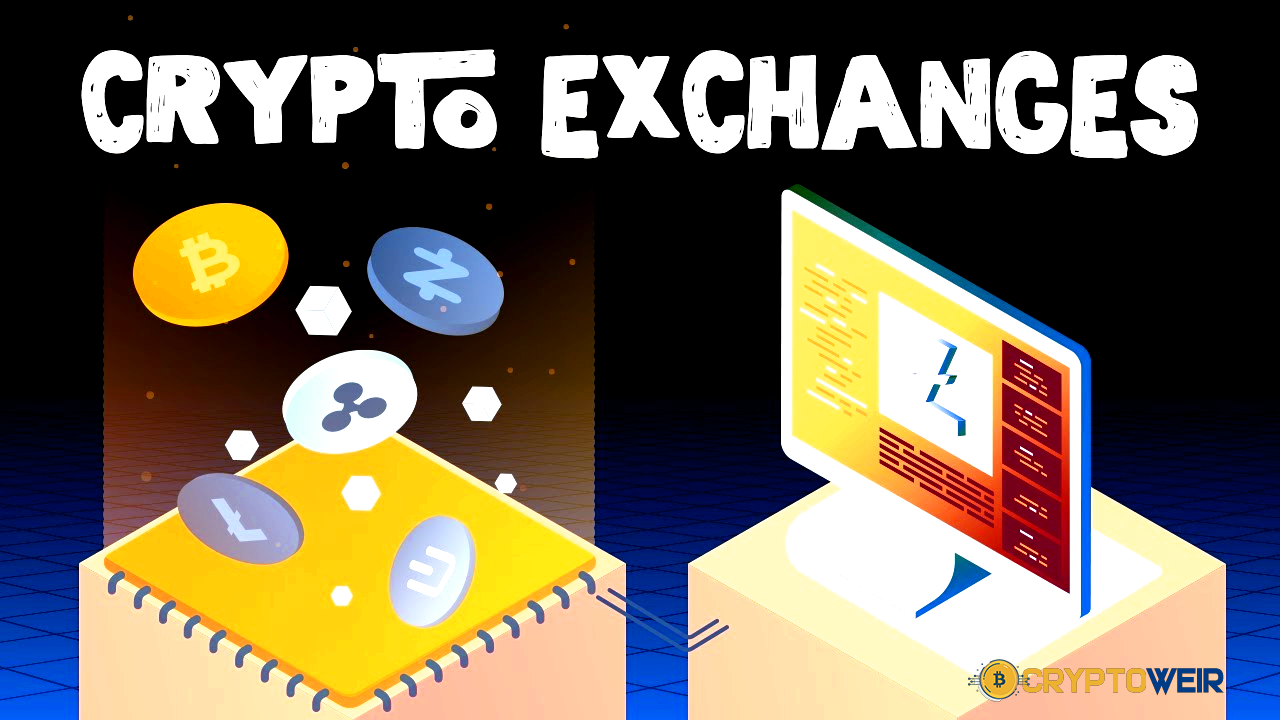
What Is a Crypto Exchange?
The place where buyers and sellers may trade cryptocurrencies is named an exchange. As of the proper moment, only a few regular investment organizations provide cryptocurrency trading, so if you would like to do it, you will need to do it through a crypto exchange.
The three primary categories of cryptocurrency exchanges are centralized, decentralized, and hybrid. However, other means of shopping for and selling cryptocurrencies exist, like investing apps and 1:1 P2P trading platforms.
Learn more about the varied exchange kinds, how a crypto exchange integrates together with your crypto wallet, and the way to choose the exchange type that’s right for you.
How a Crypto Exchange Works
You may buy and trade cryptocurrencies like dogecoin (DOGE), Polkadot (DOT), ether (ETH), litecoin (LTC), and bitcoin (BTC) once you create an account with a crypto exchange. counting on the exchange, you’ll be able to exchange one cryptocurrency for another or buy cryptocurrencies using fiat money like the US dollar.
Service is more likely to supply a variety of cryptocurrencies as it grows and becomes more well-known. Even so, before creating an account, you would possibly want to make sure your preferred cryptocurrency is accessible.
You may be able to buy cryptocurrencies on a cryptocurrency exchange using conventional fiat currency or you may be able to trade one cryptocurrency for another. you would possibly be able to exchange your cryptocurrency back.
You can purchase cryptocurrency on a crypto exchange with regular fiat money or you might be able to exchange one cryptocurrency for another. as an example, you’ll not be able to transfer your cryptocurrency to your personal cryptocurrency wallet using some services.
How to trade on a crypto exchange
You must fund your exchange account, also mentioned as a wallet, before you’ll start trading. confine mind that a wallet offered by a platform or app is usually kept on that platform. It’s typically advised that you simply create your own cryptocurrency wallet for added security (more on crypto wallets below).
Next, you’ll see the trade values for various cryptocurrencies. Because cryptocurrencies are decentralized, there could also be modest variations among exchanges, but it is vital to note that the exchange does not establish the prices; rather, the market determines them, and therefore the majority of exchanges represent current pricing.
The order is then added to the order book alongside other buy and sell orders. you’ll then place a buy order to purchase bitcoin, ether, or other cryptocurrencies. counting on the platform, exchanges and online brokers generally charge fees for their services (an exchange, an investing app, or a cash app).
Pros and Cons of Crypto Exchanges
Since the exchange is that the simplest place to purchase cryptocurrency, this is often where most individuals first encounter it. the most distinction between a cryptocurrency exchange and a wallet is that most wallets are solely helpful for transmitting, storing, and receiving cryptocurrency.
One advantage of employing a cryptocurrency exchange is that:
• Simple and practical for first-time users
• Allows for the acquisition and sale of cryptocurrency in a largely controlled environment.
• Some exchanges provide users with tax forms, making it easier to calculate cryptocurrency taxes.
The following are some drawbacks of using a crypto exchange:
• hospitable theft, fraud, or hacking
• If the exchange is offline, users cannot access their funds or perform trades.
• The administrator doesn’t keep their personal information in the custodial exchange wallet.
What Are the various Crypto Exchanges?
Centralized exchanges, decentralized exchanges, and hybrid exchanges are the three different types of digital currency exchanges. They break down as follows:
Centralized Exchanges
Similar to a brokerage, these exchanges use a 3rd party to help with transactions to ensure they go through as intended.
Since one of the core principles of cryptocurrencies is that they are decentralized, or not issued or regulated by a government or other centrosome, this might seem paradoxical. However, a centralized cryptocurrency exchange might make it simpler to get the cryptocurrency you want using fiat money.
Read More: Crypto traders should read these 7 recommendations and blunders.
Some centralized exchanges could also be more susceptible to attack because they are held by a single entity, which poses a possible risk.
Decentralized Exchanges
A decentralized exchange, or DEX, works independently from the third party typically present on centralized exchanges. Decentralized exchanges, which depend on peer-to-peer trading and are open source, could be said to be more in line with the ethos of the cryptocurrency community.
Theoretically, a decentralized exchange for cryptocurrencies could be safer than a centralized exchange. In a DEX, fees could be reduced and transactions might go through more quickly.
Comparing a DEX to its centralized counterparts may have significant disadvantages. A DEX won’t provide simple transfers from bank accounts or debit cards to acquire cryptocurrency, so you would possibly need to be a little more tech-savvy.
Your sole choice could also be to trade one cryptocurrency for another if a DEX doesn’t allow any fiat money exchanges.
Hybrid Cryptocurrency Exchanges
The goal of hybrid cryptocurrency exchanges is to mix the greatest aspects of centralized and decentralized exchanges into one. they need to provide end users with both the security and freedom of a decentralized exchange, also as the convenience of a centralized exchange.
Although hybrid exchanges haven’t yet achieved the level of adoption that centralized exchanges have, they’ll be laying the groundwork for a compromise that could one day satisfy both customers and crypto aficionados.
Other Ways to Trade Crypto
Not everyone should engage in exchange trading. the extent of technical expertise needed can be challenging. Additionally, some exchanges might adhere to the KYC (Know Your Client) system, which demands that users divulge personal information and proof of identity. Fortunately, there are other choices.
• Apps for investing. Numerous online brokers for investments provide users with apps that also allow them to purchase and sell cryptocurrencies.
• Apps for payments and cash. Users can buy cryptocurrency via applications like PayPal, Venmo, and Cash App.
You might not be able to transfer your crypto assets off the platform using some of these solutions, which presents an issue.
Users that are worried about their privacy and anonymity might want to use P2P platforms that enable direct cryptocurrency trading.









